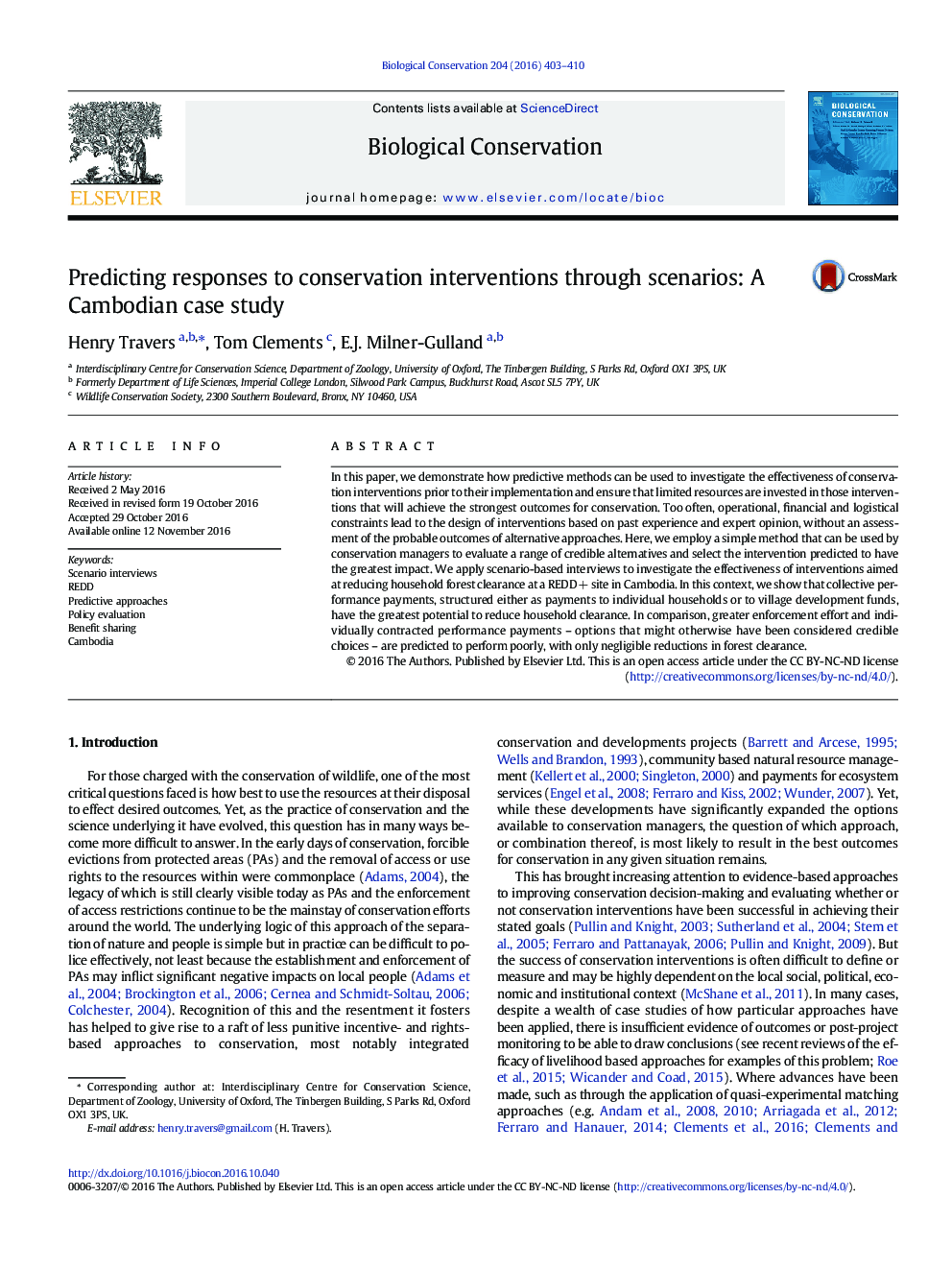| کد مقاله | کد نشریه | سال انتشار | مقاله انگلیسی | نسخه تمام متن |
|---|---|---|---|---|
| 5743417 | 1412305 | 2016 | 8 صفحه PDF | دانلود رایگان |
- Collective benefit sharing options offer the greatest reductions in forest clearance.
- Exogenous changes may undermine conservation interventions.
- Scenario-based interviews can be used to navigate contextual complexity.
- Predictive approaches provide opportunity to improve intervention design.
In this paper, we demonstrate how predictive methods can be used to investigate the effectiveness of conservation interventions prior to their implementation and ensure that limited resources are invested in those interventions that will achieve the strongest outcomes for conservation. Too often, operational, financial and logistical constraints lead to the design of interventions based on past experience and expert opinion, without an assessment of the probable outcomes of alternative approaches. Here, we employ a simple method that can be used by conservation managers to evaluate a range of credible alternatives and select the intervention predicted to have the greatest impact. We apply scenario-based interviews to investigate the effectiveness of interventions aimed at reducing household forest clearance at a REDDÂ + site in Cambodia. In this context, we show that collective performance payments, structured either as payments to individual households or to village development funds, have the greatest potential to reduce household clearance. In comparison, greater enforcement effort and individually contracted performance payments - options that might otherwise have been considered credible choices - are predicted to perform poorly, with only negligible reductions in forest clearance.
Journal: Biological Conservation - Volume 204, Part B, December 2016, Pages 403-410
